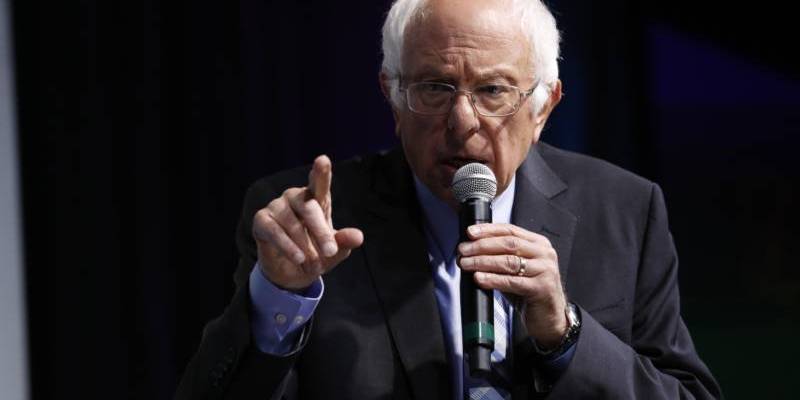From slashing aid to Israel to dividing Jerusalem, presidential candidates at the J Street conference promoted positions geared to pressure Israel into dangerous concessions to the Palestinians.
By United With Israel Staff and JNS
Sen. Bernie Sanders (I-Vt.), who is running for the 2020 Democratic presidential nomination, stated on Monday at the annual J Street National Conference in Washington that he wants to divert U.S. military assistance to Israel to the Gaza Strip, which is ruled by the Hamas terror group.
“I would use the leverage of $3.8 billion,” Sanders said, referring to the 10-year Memorandum of Understanding between the United States and Israel negotiated by former President Barack Obama.
The senator, who received a thunderous ovation, remarked that some of the $3.8 billion the United States annually gives to Israel in assistance should “go right now to humanitarian aid in Gaza.”
The Gaza Strip is ruled by Hamas, a brutal Islamic group that terrorizes the Palestinian population in the coastal enclave, while mounting regular attacks on Israeli civilians. Hamas uses large amounts of financial aid to run its terror program, which includes firing rockets at Israel, sometimes on a massive scale.
The Hamas regime overthrew the Palestinian Authority (PA) in 2007, two years after Israel withdrew from the enclave and handed over full control to the Palestinians.
In addition to Sanders, other candidates at the J Street conference promoted positions favorable to the Palestinians.
For example, former Secretary of Housing and Urban Development Julián Castro said he would reestablish a “consulate” in Jerusalem that would serve as a de facto embassy for Palestinians.
U.S. Sen. Amy Klobuchar (D-Minn.) said that she “disagreed” with President Donald Trump’s decision in March to recognize Israel’s sovereignty over the Golan Heights.
Elizabeth Warren, for her part, sent a video a message to the conference promoting dividing Jerusalem. She was also highly critical of the Netanyahu government, parroting talking points of figures who seek major Israeli concessions to the Palestinians.
Not all 2020 presidential contenders who spoke at the J Street conference took such strong positions with regard to Israel, however.
Sen. Michael Bennet (D-Colo.) said Monday on the sidelines of the conference that, if elected, the U.S. embassy in Israel would remain in Jerusalem.
“I would keep the embassy in Jerusalem, although I think the terms of that should have been part of the negotiated two-state solution even though Jerusalem has always been the capital of Israel,” he said in response to a question from JNS at a press conference prior to his remarks at the conference.
South Bend Mayor Pete Buttigieg made clear that he opposed a unilateral imposition of Israeli sovereignty in Judea and Samaria, as pledged by Prime Minister Benjamin Netanyahu, but added: “I think about it the way I think of a friendship where your friend is acting in a way you think might hurt your relationship…What you do in that situation is, you put your arm around your friend and try to guide them toward a better place.”
The J Street conference concludes on Tuesday as participants lobby on Capitol Hill.










